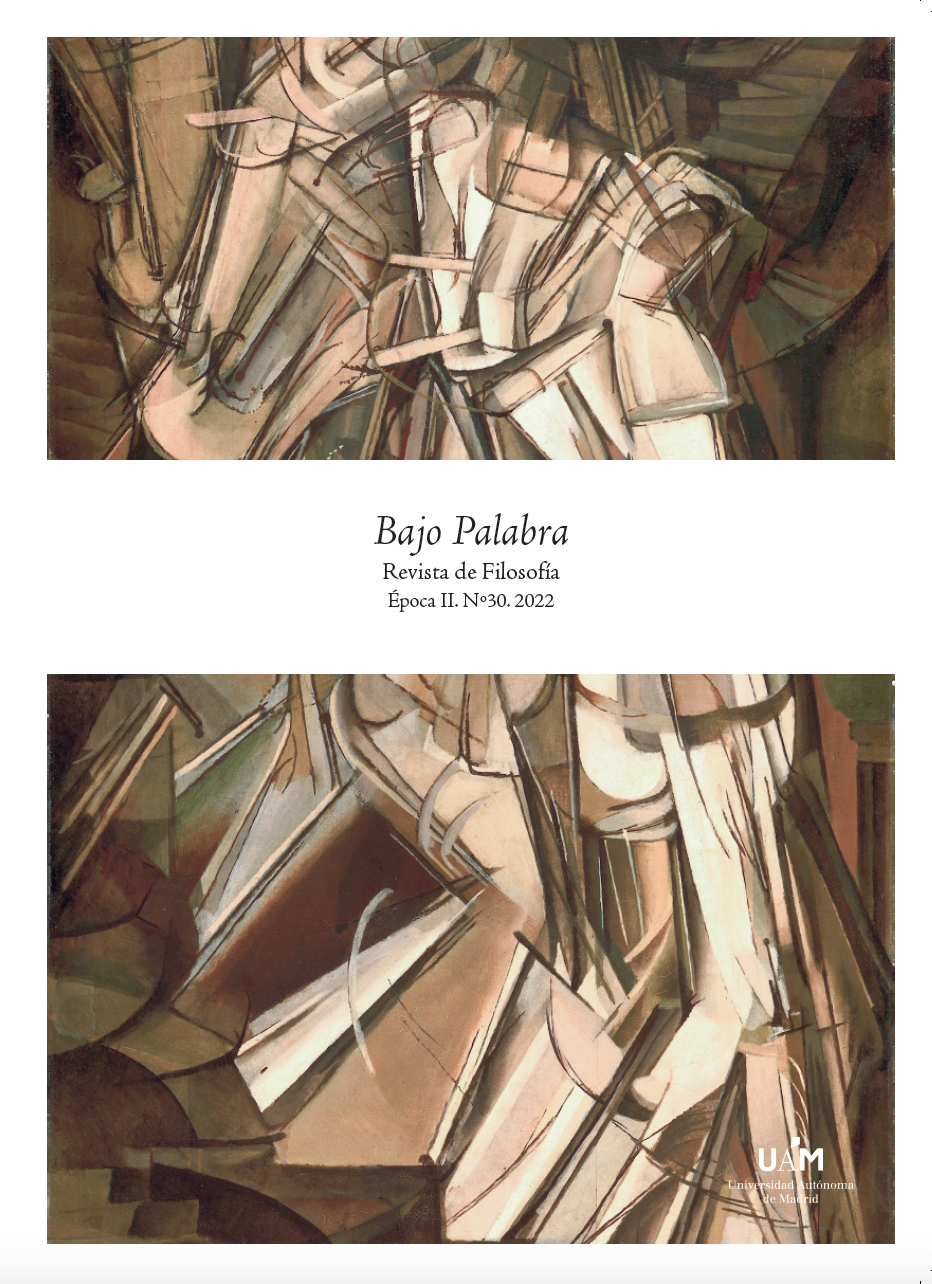Keywords:
Machiavelli, Antonio Negri, constituent power, Republic, ontologyCopyright (c) 2022 Antonio Gómez Villar

This work is licensed under a Creative Commons Attribution 4.0 International License.
Abstract
Antonio Negri seeks in Machiavelli
the principles of an ontology of constituent
power. This article critiques the
ways in which Negri reads his own theory
in the Florentine’s writings. Specifically,
the transition to antagonism he detects
in the complex relationship between The
Prince and the Discourses; the ontologisation
of the virtue/fortune relationship;
the impossibility of the Negrian multitude
to explain the metonymic gesture of
Machiavelli’s plebeians; and the alleged
absolute nature of the republican form.
Downloads
References
Balibar, É., “Spinoza, the Anti-Orwell: The Fear of the Masses”, Masses, Clases,
Ideas, Nueva York, Routledge, 1993, pp. 3-38.
Guattari, F., Negri, A., Las verdades nómadas&General intellect, poder constituyente,
comunismo, Madrid, Akal, 1999.
Hardt, M., Negri, A., Commonwealth. El proyecto de una revolución del común,
Madrid, Akal, 2011.
----, Multitud. Guerra y democracia en la era del Imperio, Barcelona, Debate,
Maquiavelo, N., Del arte de la guerra, Madrid, Tecnos, 2008.
----, Discursos sobre la primera década de Tito Livio, Madrid, Akal, 2016.
----, Discursos sobre la primera década de Tito Livio, Madrid, Akal, 2016.
----, El Príncipe, Madrid, Akal, 2000.
Negri, A., “Existe una dottrina marxista dello stato?”, Aut aut, 1976 pp. 35-50.
----, El poder constituyente. Ensayo sobre las alternativas de la modernidad, Madrid,
Prodhufi, 1994.
----, Fábricas del sujeto/ontología de la subversión, Madrid, Akal, 2006.
----, Fin del invierno, Buenos Aires, La isla de la luna, 2004.
Virno, P., Ambivalencia de la multitud. Entre la innovación y la negatividad, Buenos
Aires, Tinta Limón, 2003.
